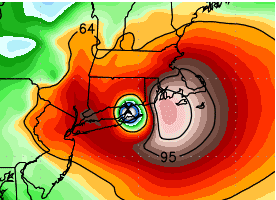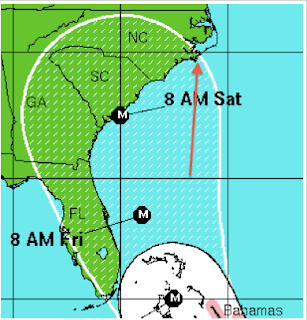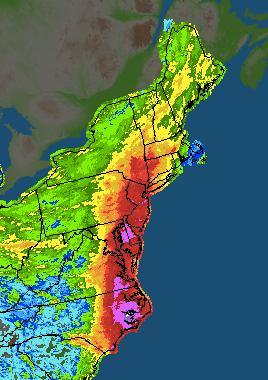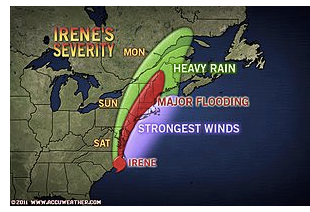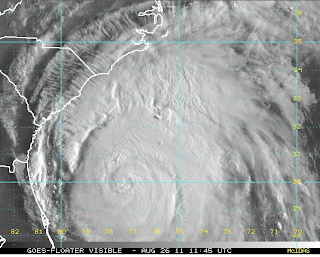Wrap-Up on Irene
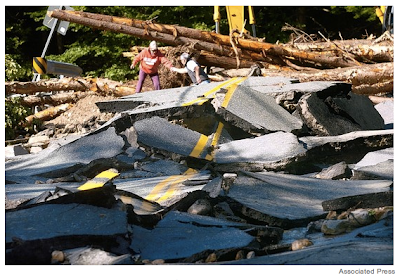
I believe it is now clear to everyone that Irene was not "overhyped" by weather forecasters,
Associated Press photo of what used to be Route 4 in Vermont
with approximately 6,000,000 still without power 4-5 days (depending on location) after the storm and communities still cut-off from the outside world, I want to close out Meteorological Musing's coverage of Irene with a remarkable time-lapse of Irene with the National Weather Service's path forecast superimposed. Hat tip: Andrea Bleistein While they were not perfect, I'm very proud of my colleagues at AccuWeather and the National Weather Service for superb forecasts of this dangerous storm that unquestionably saved lives and dollars. The meteorological profession came through again. I'd now like to talk just a moment about preparedness. The Wall Street Journal has an online story just posted about "slow pace" of the recovery. Political leaders encountered frustrated residents in th






